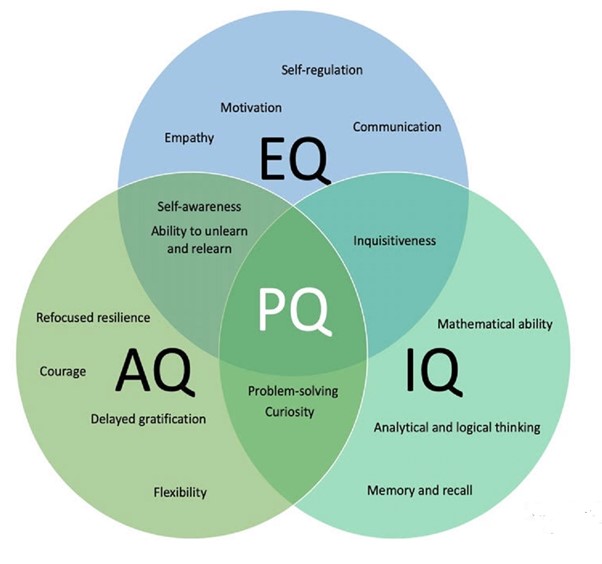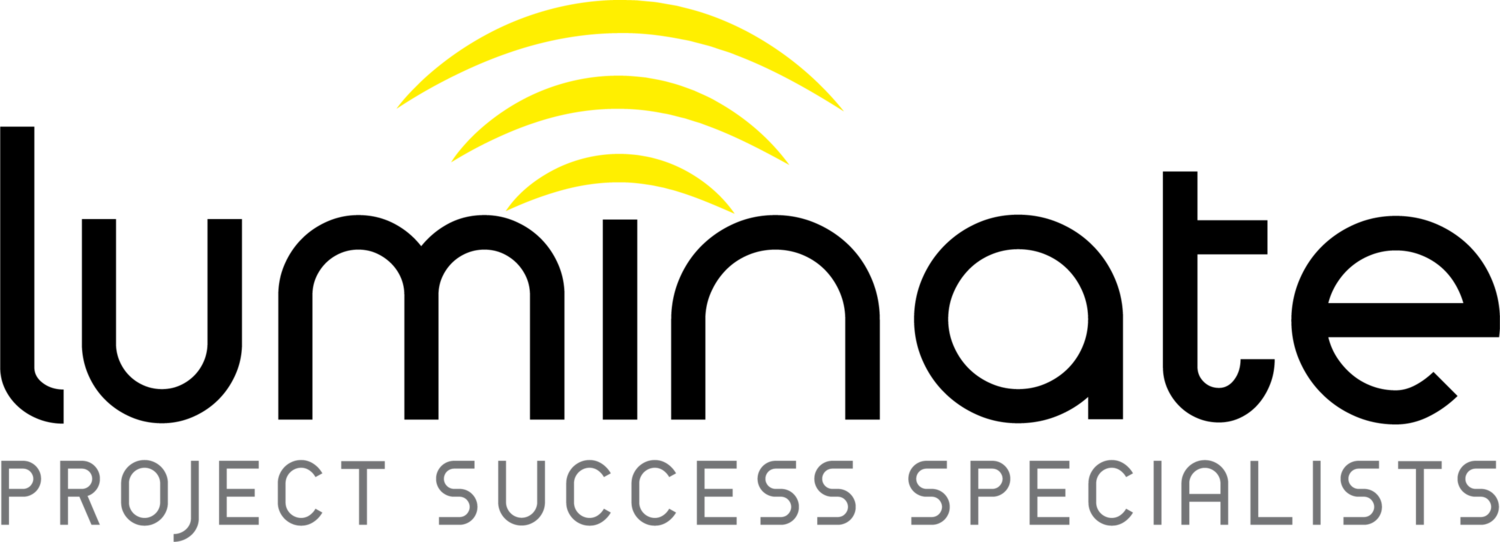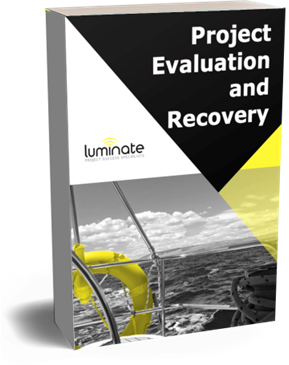
Jun 7, 2024
The reasons businesses choose to push project delivery off-shore are nothing short of urban myths. Below, I debunk a couple of these myths and explain why choosing offshore vendors to lead your project is often false economy.
Using local people costs more
I’ve seen it time and time again. Big organisations opting for the seemingly economical route of engaging offshore SI teams to handle their projects. Bedazzled by the integrator’s ‘A’ team selling-the-dream, they conveniently overlook that the pitch was predicated on blended rates. It’s only later, when the project’s in full flight, that the chickens come home to roost. The ‘A’ team from the polished pitch is substituted with inexperienced graduates locally and by offshore staff lacking the necessary skills, understanding and nuance of the customer organisation. The result? A breakdown in communication, wildly inaccurate interpretation of requirements and defect rates approaching 50%. And the biggie … the customer team working overtime and/or picking up responsibility for what was previously clearly and unambiguously within the vendor’s scope. The inevitable months of delay, floods of vendor change requests and often colossal burn rates, all too frequently leads to rapid erosion of business case benefits. Each month lost to delay, chips further away at those benefits, rendering them elusive and eventually, unobtainable.
Choosing off-shore vendors is nothing short of a false economy. The high cost of low price. Stop nickel-and-diming your projects. It’s your career that’s pegged to the successful outcome, so stop being taken in by the BS low-ball pitch of off-shore vendors; it’s smoke and mirrors.
NZ doesn’t have the talent
There is a misguided belief that the pool of skilled resources available locally is limited, particularly for niche or specialised technologies. Offshore vendors perpetuate this myth, citing their access to deep and broad global talent pools as a better alternative than long recruitment cycles to find the right local talent. Prima facie evidence suggests that there can be a strong case for engaging offshore delivery expertise; and by the way, we’ve rescued several projects that have gone haywire after starting down this track. Our experience from working with these offshore teams has positioned us well to bridge cultural and operational gaps. We understand that the interface between local and international teams is crucial for project success.
It’s all about the people
Using a local firm for your next project isn’t just a suggestion; it’s your strategic advantage. At Luminate, we understand that projects are fundamentally about people – the right people. Our success is built on selecting people with the requisite skills and high emotional intelligence (EQ). Unlike large off-shore consultancy firms that lack local insight and cultural alignment, we are deeply rooted in the local IT community. We speak your language, share your culture, and bring a wealth of demonstrable experience that can be locally verified. We know how to read the room.
A culture of excellence
We all know culture influences how teams interact, solve problems, and achieve goals. A strong, positive culture is essential for any organisation aiming for high performance. At Luminate, our PMs are committed to building a project culture based on trust, that in turn, is predicated on vulnerability. In my experience, this isn’t a trait typically encouraged or embraced within offshore vendor teams.
There’s only the A team
We don’t believe in deploying inexperienced graduates to do the job of seasoned professionals. With us, you’ll always have the ‘A’ team, led by experienced delivery professionals who understand the intricacies of our local environment and the nuances of effective collaboration.
Moreover, Luminate offers direct access to our management team on the ground. We’re not just a name on a contract; we’re your local partners, invested in your success from start to finish.
So why leave your project’s fate to chance? Embrace our local advantage and benefit from people that understand your needs and share your cultural values. Our success stems from having people with strong PM competence and the inbuilt power of EQ, to hit the ground running. Let’s chat or email me to discuss how we can deliver projects together, the right way.

Mar 1, 2024
In the evolving landscape of project management, the spotlight often shines brightest on technical prowess and methodological expertise. Yet, as we navigate through the complexities of modern projects, it becomes increasingly clear that the true bedrock of project success lies not just in the ‘what’ and ‘how’ but significantly in the ‘who.’ At Luminate, our experience has taught us that the core competencies of a project manager transcend the conventional boundaries of technical knowledge. We believe a PM must demonstrate emotional intelligence (EQ) in every decision they make, be readily adaptable (AQ), and have an innate ability to foster team chemistry.
Let’s understand the magic
Recent research, based on a survey of 150 members of the Australian Institute of Project Management, has pinpointed 15 critical success factors for projects, with project understanding and competent project team ranking as the most pivotal. This, collaborated with our own findings at Luminate, places a pronounced emphasis on what we like to call the ‘5% of magic‘ – those intangible and often innate qualities that set apart the exceptional PM from the merely competent. This ‘magic’ isn’t something that can be easily quantified or taught through traditional project management courses; rather, it’s woven into the fabric of one’s professional demeanour, reflecting a deep-seated understanding of human dynamics, and an unwavering commitment to the collective vision.
At the heart of this discussion lies the undeniable truth that project success is inextricably linked to the competence of the PM. At its core it is about the ability to read the room, to inspire and motivate, to anticipate and pivot, and to do so with a grace and resilience that will instil confidence in the project team and with the project sponsor. All the while driving progress to achieve the project’s goals.
Our observations and experiences suggest that projects led by PMs who exhibit a high EQ and AQ not only achieve their intended outcomes more consistently, but also foster a project environment that is dynamic, innovative, and resilient in the face of adversity.
People make projects successful, not methodologies
Moreover, the role of a PM extends beyond mere leadership and into the realm of trusted advisors. In all projects today, where change is the only constant, the ability of a PM to act as a steadfast beacon of adaptability and emotional intelligence becomes not just advantageous, but essential. It’s important to remember that the keystone of project success lies not in the rigid frameworks of methodology, but in the people.
The future of project management lies in our ability to recognise and value the human competencies that truly drive success. Our PMs are individuals who embody these competencies. They bring to the table not just a wealth of technical knowledge but a profound ability to connect, adapt, and lead with empathy and insight.
Many of you will have heard me say many a time – if you can’t change the people… change the people. Never is this mantra more true than for project rescue engagements. We’re often called in to provide an independent evaluation (we call it a Fitness Test) of derailed projects. Typically, we find that the incumbent PM is either not well aligned to the level of project complexity being faced, or equally as impacting, does not have the requisite level of EQ to form trusted relationships with stakeholders. Quite simply, the PM who got your project into a mess, is not going to be best placed to get you out of it!
At Luminate, we’re committed to embracing this broader vision of project management competence, fostering an environment where technical acuity meets human insight. We can hit the ground running, addressing challenges that are transformed into opportunities, and where every project becomes a testament to the transformative power of exceptional leadership.
If you’d like to know more about how we deliver complicated projects in an uncomplicated way, call Jarrod on 021 528167 or email him on [email protected].

Dec 1, 2023
At Luminate we focus on attracting, nurturing and retaining talent who demonstrate soft skills of EQ and AQ (Adaptability). The recent Pulse of the Profession 2023 report from the PMI delves further into these, referring to them as ‘Power Skills’. We refer to it as the ‘5% of magic’ that our project managers bring to our customers. It’s not a trait that can be easily coached. It’s inherent. It’s in their DNA. And it’s a critical requirement for our PMs.
The very best PMs have these skills in spades, on top of the entry requirement of having a solid foundation of technical skills (otherwise known as IQ or smarts). At Luminate we take IQ as a given. You have to be smart to be part of our team. But that’s simply the invitation to the party. The real magic happens when the party gets underway.
What the PMI describes so well in its report is that these Power Skills allow PMs to align their projects to organisational objectives and provide the singular focus on a common North Star for their delivery teams. PMI’s research reveals that 92% of their respondents agreed that Power Skills help them work smarter. Furthermore, organisations that place a priority on Power Skills have higher rates of project management maturity, benefits realisation management and organisational agility.
Companies who understand the importance of these soft skills and place a value on the advantage they bring, stand to realise significant uplift in capability maturity (skill & will), project performance and delivery of promised benefits.
In the ever-evolving landscape of project management, the emphasis has significantly shifted beyond mere technical know-how. As you know, we’ve always championed EQ over IQ and more recently, AQ as the differentiator of a project manager’s abilities.
The PMI’s Pulse of the Profession 2023 report illuminates this shift, introducing ‘power skills’ – a fusion of emotional intelligence (EQ) and adaptability quotient (AQ). At Luminate, we recognise that while a high IQ opens doors, the real transformative impact is made when power skills come into play.
Here are my five key insights from analysing the report:
- Impact of power skills: Organisations prioritising power skills like adaptability and emotional intelligence see more project success, with reduced scope creep and financial losses.
- Value of power skills: 92% of project professionals recognise the importance of power skills for effective work, indicating widespread acknowledgement across industries.
- Critical power skills: Key skills include communication, problem-solving, collaborative leadership and strategic thinking, essential for successful project management.
- Industry focus: Information technology, manufacturing, energy and telecommunications prioritise power skills more than sectors like government and healthcare.
- Combining skills for success: A balance of power and technical skills enhances project management, improving performance and adapting to market changes.
Aligning with the organisational ethos
PMI’s findings underscore the crucial role of power skills in aligning project initiatives with the larger organisational vision. An impressive 92% of professionals surveyed acknowledged that power skills contribute to more efficient and smarter work practices. This alignment transcends the conventional confines of deadlines and budget, steering projects to resonate with and contribute significantly to the overarching goals of the organisation.
The strategic advantage of power skills
In today’s competitive market, organisations prioritising power skills are witnessing enhanced levels of project management maturity and agility. Leading this trend, Luminate’s strategy has always been to attract and develop talent rich in these power skills. Our approach resonates with the insights from both PMI and PwC’s collaborative study on Narrowing the Talent Gap, highlighting the distinctive ‘5% of magic’ that our project managers bring to their roles.
Power skills are innate and indispensable
This ‘5% of magic’ is not a trait that can be fostered through training alone. It is innate, woven into the fabric of our project managers’ DNA. Luminate’s recruitment and development strategies are centred around identifying and nurturing this natural ability to adeptly navigate the intricacies of project management, blending empathy, adaptability and strategic vision.
At Luminate, we don’t just recognise the importance of Power Skills; we actively cultivate an environment conducive to their growth. We place equal emphasis on EQ and AQ as on IQ, ensuring that our project managers are not only technically adept but also emotionally intelligent and highly adaptable. This balanced approach has been pivotal in enhancing our project delivery capabilities, consistently exceeding client expectations.
Transforming obstacles into opportunities
We believe in converting challenges into opportunities for growth and innovation. Our project managers are trained to view change not as an impediment but as a catalyst for development. This paradigm shift is essential in the current fast-paced business milieu, where adapting is key to maintaining relevance and achieving success.
Looking ahead, the interplay between power skills and technological advancements is set to become increasingly vital. As AI and automation redefine the project management landscape, the human elements of connection, empathy and adaptability remain indispensable. Luminate is at the forefront of this evolution, seamlessly integrating cutting-edge technology with the unique human skills of our project managers.
At Luminate, EQ and AQ are more than mere buzzwords; they are fundamental to our project management ethos. These power skills distinguish our team, empowering us to navigate the complexities of modern project management with an unmatched blend of intelligence, empathy and adaptability. By embracing these skills, we continue to set industry benchmarks, delivering exceptional value to our clients and stakeholders.

Nov 3, 2023
Most of us are familiar with the terms IQ (Intelligence Quotient) and EQ (Emotional Quotient) – traits that measure intelligence and interpersonal skills. For a long time, I’ve bandied about EQ trumping IQ with respect to success in project management. Empathy and communication win over frameworks, methodologies and expert-in-a-day courses.
But move over EQ, there’s a new Q in town, one that holds the key to true success. Meet the Adaptability Quotient (AQ). In an era characterised by constant change and unpredictability, having a high AQ is becoming more essential than ever before. It all comes down to how well we can adapt to shifting landscapes and evolving challenges. In this blog, I will delve into why project managers need to prioritise developing their AQ in order to stay ahead of the game.
What exactly is AQ, and why is it gaining such prominence?
AQ refers to an individual’s ability to adapt and thrive in an ever-changing work environment. With the rapid advancements in technology and the increasing complexity of projects across industries, employers are now realising the importance of team members who can navigate uncertainty with ease.
What sets AQ apart from other competencies is its focus on agility and flexibility. Individuals not only need to embrace change but also exhibit resilience when facing setbacks or unexpected obstacles. In today’s fast-paced world, where disruptive forces can completely upend established industries overnight, having people with a high AQ is considered essential for companies to stay competitive.
Another reason why AQ is gaining prominence is its potential for growth. Unlike IQ and EQ, which some argue are fixed traits that cannot be significantly improved upon, AQ can be developed over time through learning and intentional practice. Investing in training programmes that focus on enhancing adaptability skills can lead to substantial benefits for both individuals and businesses alike. By fostering an organisational culture that values adaptable thinking and encourages continuous learning, companies can create an environment where innovation thrives.
The changing landscape
Our world is in a constant state of flux, and technology is advancing at an exponential rate. In project management, this translates to a need to pivot and adapt faster than ever before.
We may soon see AQ used as a metric in recruitment, focusing on the candidate’s ‘fit’ within an organisation. Successful project managers will be proactive and understand the dynamics at play, engaging people to keep projects on track. No team needs a brilliant xxxxhead!
Champions of change
AQ assesses an individual’s capacity to handle change, their openness to new ideas, and their willingness to challenge the status quo. Those with high AQ exhibit a remarkable ability to adapt to uncertainty, embrace innovation, and thrive in dynamic environments. These are individuals who can champion change. For businesses to thrive they will seek people with a balanced triad of quotients – IQ, EQ, and AQ. Individuals that not only possess the technical skills required for the job but also excel in connecting with others and exhibit the right mindset, drive, and motivation. It’s the harmonious synergy of these quotients that empowers individuals to achieve successful results.
Natalie Fratto, a Vice-President at Goldman Sachs New York, emphasises that AQ goes beyond the capacity to absorb new information. It involves the ability to discern relevance, unlearn obsolete knowledge, overcome challenges, and consciously make an effort to change. Flexibility, curiosity, courage, resilience, and problem-solving skills all play a part in AQ.
Embracing adaptability as a necessity
Harvard Business Review is predicting AQ is poised to become the “new competitive advantage.” Both companies and individuals must acknowledge that adaptability is not just a desirable trait; it’s an absolute necessity.
Failing to adapt can result in lost opportunities and, in extreme cases, even bankruptcy. We’ve witnessed this scenario unfold with companies like Blockbuster, Kodak, and BlackBerry, all of which failed to adapt and faced dire consequences. Similarly, individuals must embrace change to remain relevant and successful in their personal and professional lives.
Turning challenges into opportunities
The key to embracing AQ is transforming challenges into opportunities. Instead of fearing or resisting change, view it as a chance for personal and professional growth and development. As Amy Edmondson, Professor of Leadership and Management at Harvard Business School points out, it’s the breakneck speed of workplace change that will make AQ more valuable than IQ. She says: “Learning to learn is mission critical. The ability to learn, change, grow, experiment will become far more important than subject expertise.”
The transformative influence of AQ in project management
The influence of AQ in project management is nothing short of transformative. In a period characterised by perpetual change and unpredictable variables, project managers endowed with a high AQ are poised to excel in this dynamic landscape. Their unique capacity to swiftly adapt to ever-evolving landscapes, emerging technologies, and shifting project demands is a game-changer.
These high AQ project managers embody resilience when confronted with setbacks or unforeseen obstacles, ensuring that projects maintain their course even amidst turbulence. AQ introduces an entirely new dimension to project management, empowering teams to pivot and innovate rapidly.

Aug 4, 2023
I have a confession to make. I was tempted to take a shortcut and let AI do the heavy lifting for this blog. With the monthly deadline looming, I thought it would be a clever move to enlist the help of algorithms. However, what I quickly discovered is that while AI can deliver the basic structure, it falls short when it comes to capturing the emotional connection and interpretation that I was looking for. Sure, this blog may not be a Pulitzer Prize piece, but you get the idea.
This experience got me thinking about the realm of AI in project management, where Gartner’s research indicates that AI is making strides in transforming the landscape, predicting that by 2030, 80% of project management tasks will be run by AI.
While AI undoubtedly offers immense time saving benefits, it can never replace the indispensability of good project managers. In fact, it is precisely in this age of AI that individuals with strong interpersonal skills will rise to the top.
EQ trumps IQ in the age of AI
Showing control and confidence when faced with challenges are crucial skills displayed by a PM with high EQ. They can demonstrate how to calmly diffuse emotions with facts, ensuring all stakeholders are aligned on the common project goal. And when you watch a team led by someone like this – they tend to reflect the PM’s approach to pressure. The positive bearing this can have on a project is hard to overstate.
This distinctive mix of interpersonal skills and leadership style makes the PM stand poised to harness the full potential of AI while preserving that crucial human connection that propels project success.
Therefore, AI’s integration into IT project management has become a boon for emotionally intelligent project managers. Building trust and fostering collaboration are second nature to an EQ project manager. By blending the analytical capabilities of AI with their exceptional communication skills, this enables them to nurture deeper connections with stakeholders, and unlock the true potential of their teams.
Embrace the AI revolution
AI will give project managers the ability to save time. Automation of repetitive processes like progress tracking and risk analysis will provide real-time information sharing, document collaboration and effortless communication. An EQ project manager will embrace these invaluable insights to make data-driven decisions, and formulate strategies that align with both project objectives and the emotional needs of the team.
An EQ project manager who can leverage this technology to communicate consistently and timely to all stakeholders, will be a critical differentiator when challenges are faced and tough decisions need to be made.
These skills are particularly valuable in coaching and training project teams to embrace the benefits of AI tools, and navigate any new complexities that are required to integrate into existing processes.
People make projects successful, not methodologies
The human touch remains at the core of project success and the significance of emotionally intelligent project managers cannot be underestimated. PMs will play a pivotal role in the transition of using AI tools, bridging the gap between cutting-edge technology and human collaboration, thus paving the way for extraordinary outcomes.
At Luminate we’ll continue to embrace AI, as we can only see the benefits of tools like this and it frees up more time to focus on the top 20% of what really drives project success.






